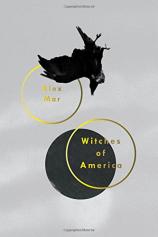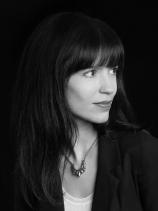Reading Group Guide
Discussion Questions
Witches of America

1. Discuss your own experiences with spirituality. How do the rituals described in the book compare with the religious traditions you observed as a child?
2. Victor and Cora’s magical descendants will have to “pass on the Feri current,” although revisions and regeneration are encouraged. How do the communities described in the book create hierarchies and leaders while remaining open to change?
3. While many religions restrict sexual behavior, considering it a path to sin, the author confronts the belief that sex can have magical and spiritual power. Did the book change the way you view sexuality?
4. As we see at Stone City, in the woods of Illinois, and through several outdoor rituals and initiations, the natural world plays an important role in Paganism. How does this relate to the author’s own relationship to nature as described in chapter 15, “Three Nights at the Castle”?
5. Morpheus built Stone City with her own hands. Could you survive off the grid? How would you be affected by an intensely unplugged existence?
6. While televangelists broadcast to global audiences, Wicca and other Pagan traditions are mostly practiced in the shadows. How does secrecy affect the belief system? Would you be comfortable worshiping “underground”?
7. Which of the book’s many symbols was most powerful for you? What are your beliefs about the power of rituals?
8. Initiation rituals appear in various places throughout the book. What role has the concept of initiation played in either your religious or your secular life?
9. When the author goes into training with Karina, who struggles with earthly poverty, what does she learn from her mentor besides the practice of witchcraft?
10. At one gathering, the author meets a group of Dianic Wiccans of an all-female strain that emerged as part of second-wave feminism. But many Pagan traditions attract both men and women. Before reading the book, did you think of witchcraft as exclusively for women? What does the Pagan movement offer men in equal measure to what it offers women?
11. Before you read the book, what was your definition of magic? Did the practices in the book --- whether those of Morpheus, Karina or Josh --- change your view of magic? Do you believe that a spell is similar to a prayer?
12. In chapter 17, “Sympathy for the Necromancer,” do Jonathan’s practices, while probably upsetting to most readers, also raise questions about how we view death?
13. In the final chapter, what transformation did you recognize in the author? What do you think the message of the closing section is?
Witches of America
- Publication Date: October 20, 2015
- Genres: Nonfiction, Religion, Religion & Spirituality, Spirituality
- Hardcover: 288 pages
- Publisher: Sarah Crichton Books
- ISBN-10: 0374291373
- ISBN-13: 9780374291372







